This pub is closed permanently. Your nearest Wetherspoon pub: The Imperial, Exeter
Named after the distinguished general who was born at Downes – the Bullers’ fine seven-bay mansion to the southeast of the town centre – in 1839. Crediton’s most celebrated son of modern times was General Sir Redvers Buller. His distinguished military career included campaigns in the Sudan and the Boer War.
Prints and text about The General Sir Redvers Buller.
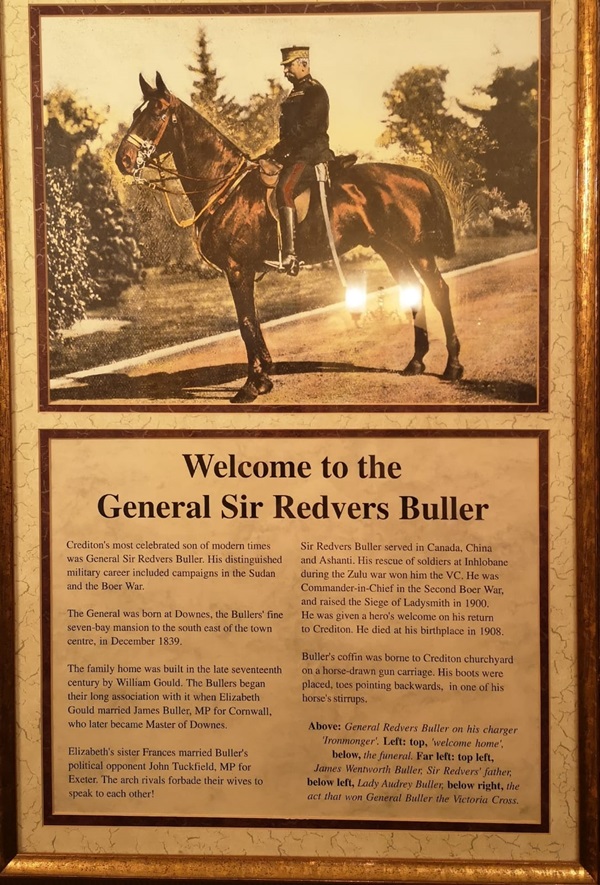
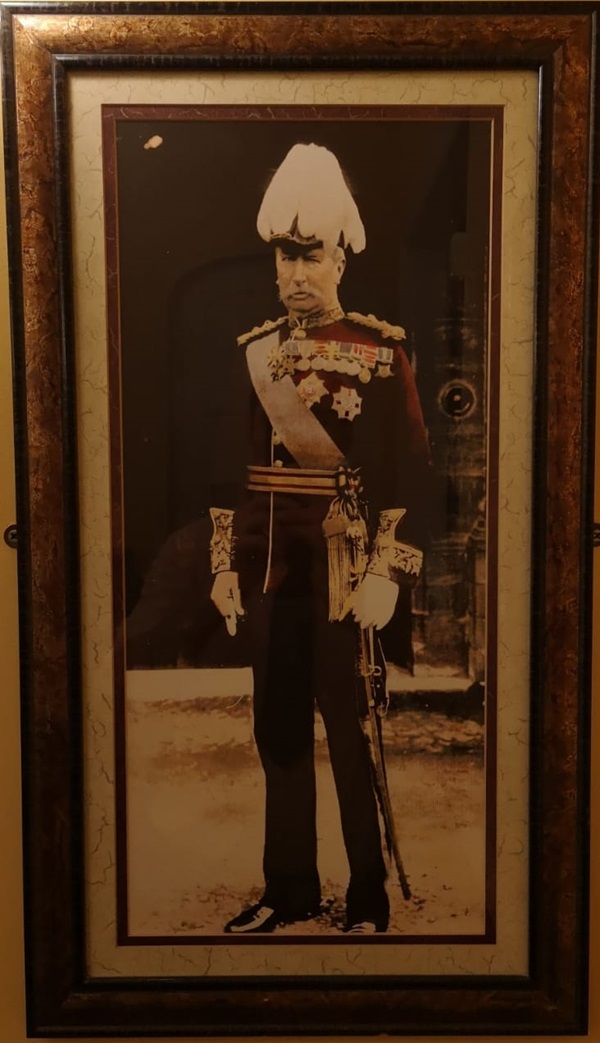
The text reads: Crediton’s most celebrated son of modern times was General Sir Redvers Buller. His distinguished military career included campaigns in the Sudan and the Boer War.
The General was born at Downes, the Buller’s fine seven-bay mansion to the south east of the town centre, in December 1839.
The family home was built in the late seventeenth century by William Gould. The Bullers began their long association with it when Elizabeth Gould married James Buller, MP for Cornwall, who later became Master of Downes.
Elizabeth’s sister Frances married Buller’s political opponent John Tuckfield, MP for Exeter. The arch rivals forbade their wives to speak to each other!
Sir Redvers Buller served in Canada, China and Ashanti. His rescue of soldiers at Inhlobane during the Zulu war won him the VC. He was Commander in Chief in the Second Boer War, and raised the Siege of Ladysmith in 1900. He was given a hero’s welcome on his return to Crediton. He died at his birthplace in 1908.
Buller’s coffin was borne to Crediton churchyard on a horse-drawn gun carriage. His boots were places, toes pointing backwards, in one of his horse’s stirrups.
Above: General Redvers Buller on his charger Ironmonger.
Prints and text about WE Gladstone.
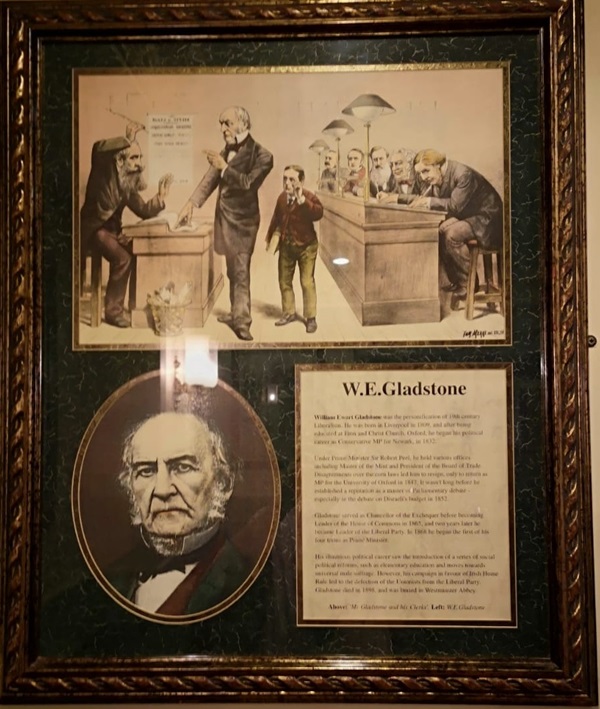
The text reads: William Ewart Gladstone was the personification of the 19th century Liberalism. He was born in Liverpool in 1809, and after being educated at Eton and Christ Church, Oxford, he began his political career as Conservative MP for Newark, in 1832.
Under prime minister Sir Robert Peel, he held various offices including master of the mint and president of the board of trade. Disagreements over the corn laws led him to resign, only to return as MP for the University of Oxford in 1847. It wasn’t long before he established a reputation as a master of Parliamentary debate – especially in the debate on Disraeli’s budget in 1852.
Gladstone served as Chancellor of the Exchequer before becoming leader of the liberal party. In 1868 he began the first of his four terms as prime minister.
His illustrious political career saw the introduction of a series of social political reforms, such as elementary education and moves towards universal male suffrage. However, his campaign in favour of Irish Home Rule led to the defection of the Unionists from the Liberal Party. Gladstone died in 1898, and was buried in Westminster Abbey.
Above: Mr Gladstone and his clerks
Left: WE Gladstone.
Illustrations and text about St Boniface.
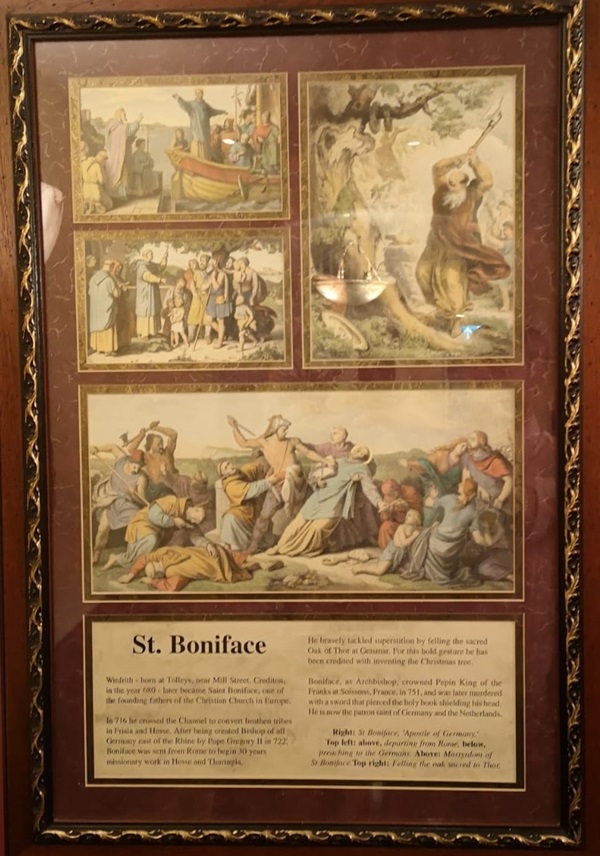
The text reads: Winfrith – born at Tolleys, near Mill Street, Crediton, in the year 680 – later became Saint Boniface, one of the founding fathers of the Christian Church in Europe.
In 716 he crossed the Channel to convert heathen tribes in Frisia and Hesse. After being created Bishop of all Germany east of the Rhine by Pope Gregory II in 722, Boniface was sent from Rome to begin 30 years missionary work in Hesse and Thuringia.
He bravely tackled superstition by felling the sacred Oak of Thor at Geismar. For this bold gesture he has been credited with inventing the Christmas Tree.
Boniface, as Archbishop, crowned Pepin King of the Franks at Soissons, France, in 751, and was later murdered with a sword that pierced the holy book shielding his head. He is now the patron saint of Germany and the Netherlands.
Right: St Boniface, Apostle of Germany,
Top left: above, departing from Rome
Below: preaching to the Germans
Above: Martyrdom of St Boniface
Top right: Felling the oak sacred to Thor.
Prints and text about the Liberal Club.
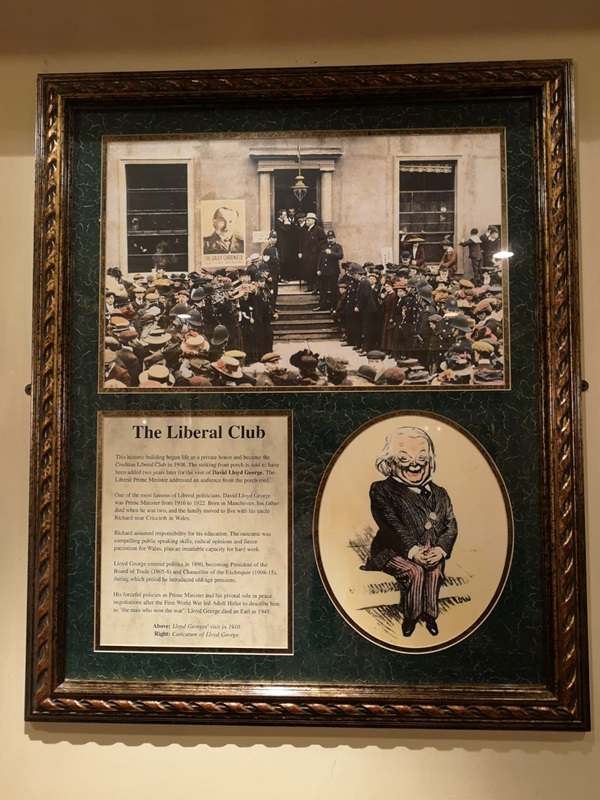
The text reads: This historical building began life as a private house and became the Crediton Liberal Club in 1908. The striking front porch is said to have been added two years later for the visit of David Lloyd George. The Liberal Prime Minister addressed an audience from the porch roof.
One of the most famous of Liberal politicians, David Lloyd George was Prime Minister from 1916 to 1922. Born in Manchester, his father died when he was two, and the family moved to live with his uncle Richard near Criccieth in Wales.
Richard assumed responsibility for his education. The outcome was compelling public speaking skills, radical opinions and fierce patriotism for Wales, plus an insatiable capacity for hard work.
Lloyd George entered politics in 1890, becoming President of the Board of Trade (1905-8) and Chancellor of the Exchequer (1908-15), during which period he introduced old-age pensions.
His forceful policies as Prime Minister and his pivotal role in peace negotiations after the First World War led Adolf Hitler to describe him as ‘the man who won the war’. Lloyd George died an Earl in 1945.
Above: Lloyd Georges’ visit in 1910
Right: Caricature of Lloyd George.
Photographs of the Liberal Club and Downes, home of General Buller.
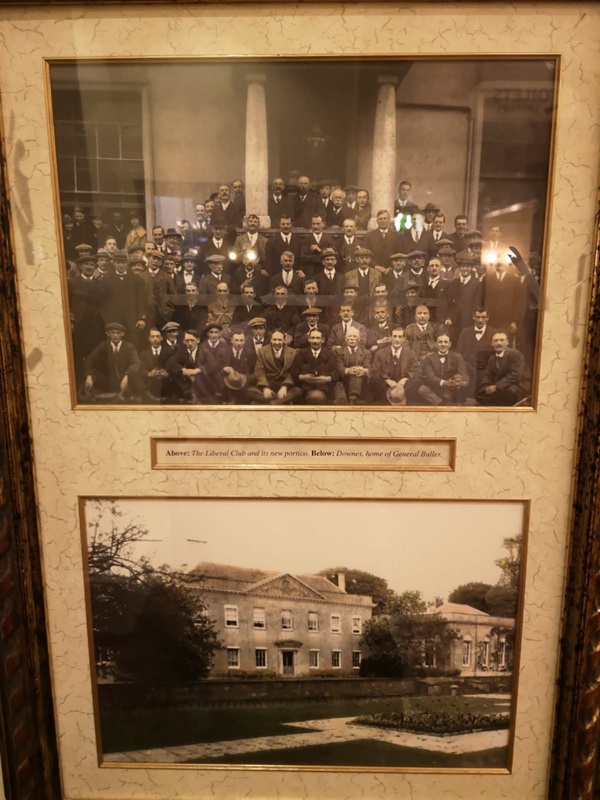
External photograph of the building – main entrance.
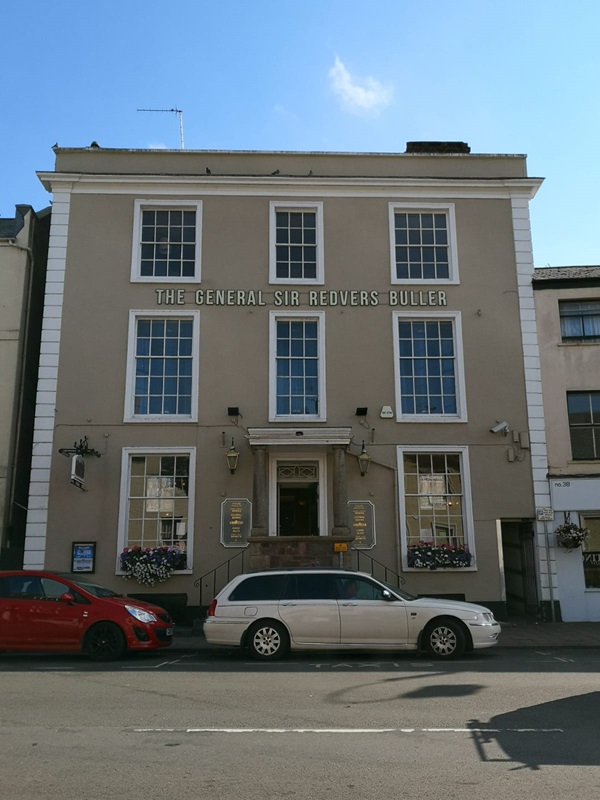
If you have information on the history of this pub, then we’d like you to share it with us. Please e-mail all information to: pubhistories@jdwetherspoon.co.uk